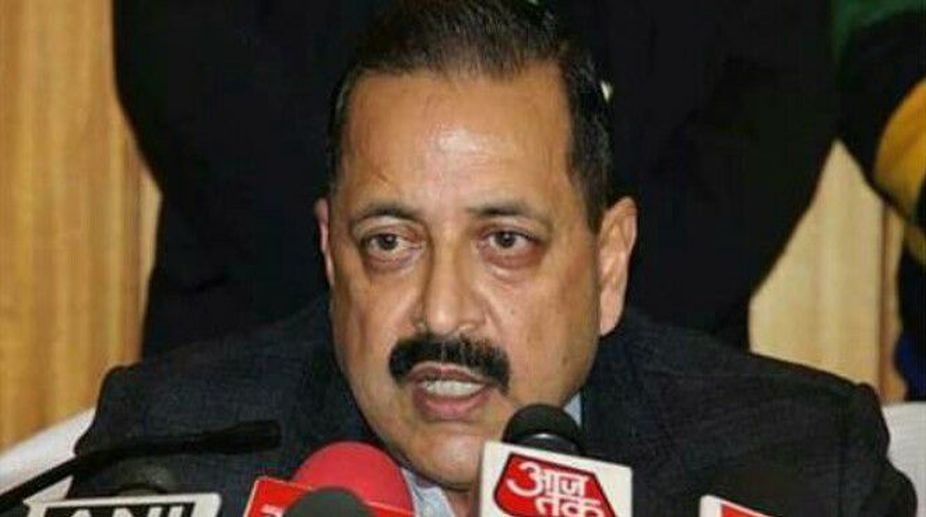Congress, allies sabotaged Jammu’s national projects: Dr Jitendra Singh
The minister further alleged that the Congress also denied 4% reservation to the people living along the International Border in this region.

Jitendra Singh (Photo: Facebook)
Taking a dig at leaders opposed to the implementation of GST in Jammu and Kashmir arguing that it will affect the state's autonomy, Union minister Jitendra Singh said today the reform is a major step towards granting "fiscal autonomy" to the states.
The Goods and Services (GST) Tax will also bring ease of business by reducing bribery and corruption and eliminate unending traffic jams at toll and tax posts all over the country, he said.
Terming the GST as a first major step to strengthen the federal structure, Singh said "the new legislation will give financial autonomy to states including J-K".
Advertisement
"This is for the first time in the history of independent India that the Prime Minister has shown the courage to take a major decision not only to strengthen federalism but also to introduce cooperative federalism," he said.
He criticised those making allegations that the GST will affect the "so called" autonomy of the state.
Singh said that the states had a major say in the GST council decisions.
He said that J&K and some other states had got some tax related advantages under the regime.
The Union minister said that most of the small and medium level traders in the state will get benefit of exemption and many will not have to pay tax at all.
Many products including house hold items like tooth powder, tooth paste, cereals, dairy products, cooking items like mustard oil, coconut oil etc will have a lower tax rate after implementation of GST compared to the present, he said.
He said that certain essential medicines including Insulin etc will also become cheaper.
The minister said that it is also important to understand the disadvantages of a scenario in which the GST is rolled out in entire India except J-K as both traders and consumers of the state will have to pay "double" tax in that case.
Advertisement